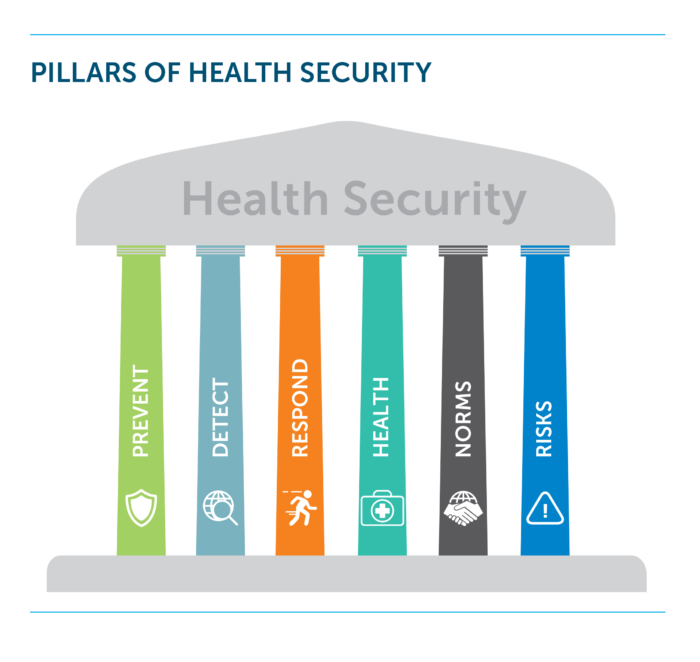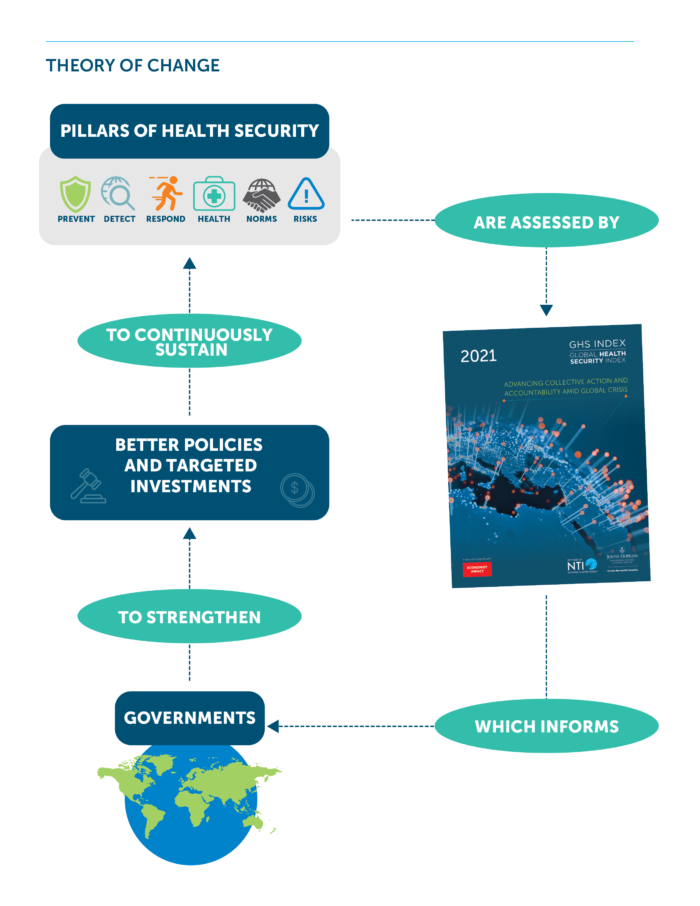- Analysis
- December 8, 2021
Although other frameworks exist for measuring public health capacities, the GHS Index uniquely offers a broad assessment of preparedness gaps in all 195 States Parties to the International Health Regulations (IHR[2005]), the global treaty governing country requirements to mitigate cross-border health threats.
The GHS Index is built upon three fundamental principles:
- Rewarding transparency: The GHS Index can assess only transparent and available data.
- Recognizing that many factors contribute to preparedness: From core public health and healthcare preparedness capacities, the GHS Index also measures cross-cutting factors related to effective biological threat mitigation, socioeconomic resilience, and
societal vulnerabilities. - Expanding accountability and responsibility: The GHS Index is prepared with the understanding that measuring countries’ capacities and risks will increase accountability and motivate countries, inter-governmental organizations, donors, and the private sector to work together to ensure that countries are prepared for health security threats
The GHS Index is organized by six categories aimed at assessing country capability to prevent, detect, and respond to biological threats as well as factors that can hinder or enhance that capability such as health systems, norms and risks.

The GHS Index plays an important role within the global health security field by providing baseline data related to country preparedness capacities and risks. Countries can use these data to inform preparedness efforts, and international governmental and other global organizations can use country-level data to monitor and advocate for better preparedness for health emergencies. GHS Index data supports efforts of the Global Preparedness Monitoring Board (GPMB), a panel of international experts convened by the WHO, and the World Bank to advocate for investments in national and global health preparedness. The GHS Index provides a data-driven foundation for reinvigorated national and global conversations about how to develop needed capacities and support the political, financial, and social environments needed to improve global preparedness for infectious disease threat. It also provides data-driven support for the recommendations from the GPMB and other international panels, including the G20 High Level Independent Panel on Financing the Global Commons for Pandemic Preparedness and Response and the Independent Panel for Pandemic Preparedness and Response.
